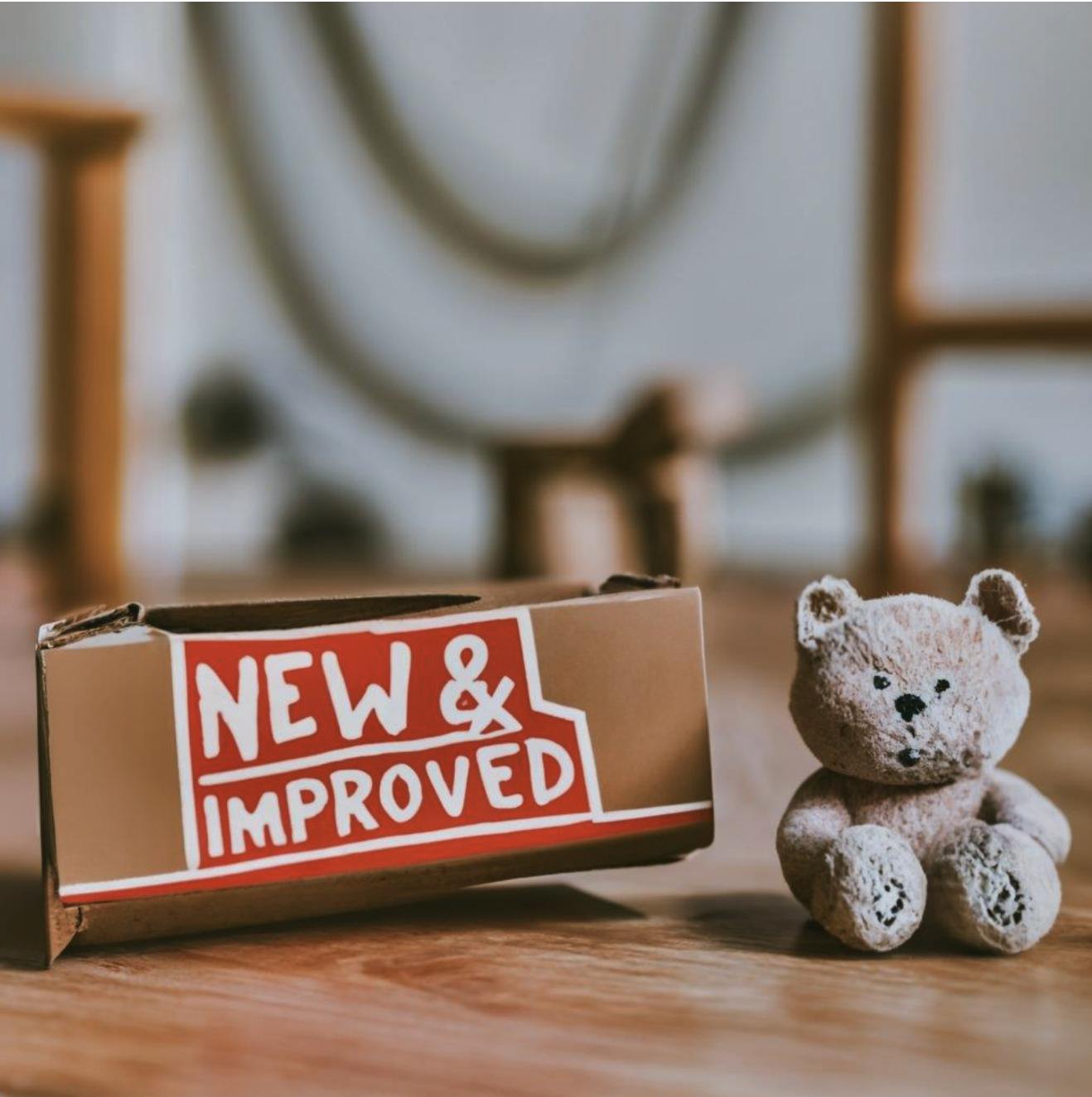Lessons Learned
Nov 1, 2023

Wisdom from 40 years of investing.
Why this, why now?
The investment industry has become very complicated, especially with the amount of information available through the internet and social media. The industry is full of jargon and useless details, which can be confusing. Information is plentiful, but wisdom is scarce.
It is imperative that we come back to simple language and common sense when it comes to investing and retirement solutions. I am hopeful that the lessons in this book may help Canadians achieve their investment goals.

I was born in Old Delhi, India. Our family decided to call Canada our home in the 1960's. Raised in Ottawa, I later had the fortunate opportunity to attend University of Waterloo and received my CFA designation. Like many, I was fortunate enough to have a wealth of personal experiences - some good, some bad - all of which shaped who I am today.
I began investing by taking my paper route money and buying silver coins at the age of 12. A valuable and relatively inexpensive lesson for me. By the time I started university, I was officially investing in the stock market. After graduating, I joined TD Bank and worked my way up to become Chief Investment Officer, growing the portfolio from virtually $0 to $250 billion 30 years later. The portfolio served retail and institutional clients.
As CIO at OMERS, I was responsible for managing the $125 Billion pension plan for municipal employees across public and private asset classes including infrastructure, private equity and real estate on a global platform.
When someone makes mistakes, they are frequently asked what lessons they learned from them. During my career at TD Bank and OMERS, and in my personal investing, I have been fortunate enough to have made many mistakes and learned many lessons. The most important is that common sense matters more than anything else. Keep it simple and invest with great people and great assets.
Having spent 40 years learning how to invest, I want to share the lessons I have learned, so that you too can build wealth for you and your family.

01. Start investing early
The earlier you start your savings journey, the easier it is to achieve your goals.
If you invest at a young age, you might only have to save 5% of your annual income. If you invest in your 40s, you might have to save 20% of your annual income. Starting to invest past your 50s means you might need to save over 40% of your annual income to achieve your retirement goals.
Investing early requires less savings and provides a much higher probability of achieving financial freedom.
Compounding returns is one of the great wonders of the investment industry.

02. A little savings goes a long way
Saving is arguably the most important aspect of financial health. This doesn't mean you need to save huge amounts … a little can go a long way. Regularly saving 5% - 10% of your income can have a meaningful effect on your accumulated wealth over time (certainly compared to overspending 5 - 10%). In the long-run, greater wealth will allow you more financial freedom.
The beauty of saving is that other people pay you to accumulate wealth. On the other hand, when you have debt, you are building wealth for someone else.

03. Good debt vs. bad debt
Not all debt is equal. Some debt on assets, like a house, is good – it's a reliable investment vehicle (in most cases) and you can count on it to appreciate over time. You are still paying interest to service the debt, but your assets are growing at the same time.
Other kinds of debt, like credit card debt, or frequent luxury purchases (like cars, clothes or other smaller assets) made on credit can damage your financial health. The interest you pay on these debts is added to the depreciation of these items.
It is ok to borrow to invest, not to consume.

04. The value of a defined benefit retirement plan
If you have a defined benefit (DB) retirement plan, you're lucky! Defined Benefit plans are the best retirement solution. DB plans take the hassle and the risk out of retirement planning.
DB plans allow you to count on the programmed pension amounts that you will receive in the future, without having to worry about how much to save or the returns on your investment.
If you do not have a Defined Benefit plan, enroll in a RRSP, TFSA, RESP and/or a FHSA. All are good choices.

05. Investing should be a marathon not a sprint
You won't reach your financial goals overnight. Like most good things, financial wellness takes time and discipline. Many investors expect quick returns following a frenzy of activity, but the most successful investors show long-term patience and commitment.
Don’t be distracted by short-term opportunities, stay focused on long-term goals. Remember there is always a trade-off between time and returns.
The shorter the time horizon, the lower the returns. The longer the time horizon, the higher the returns.

06. Consistency is key
Like any good habit, when trying to build up your savings muscle, consistency is key. The frequency and regularity with which you save is almost more important than the amount you save!
The longer you save, the more you will benefit from the compounding effect of interest.

07. Investing is not a day at the races
Many investors think there is at least a 50/50 chance of making money when they buy an investment. They may believe they are investing, however in many cases what they are really doing is gambling. Some investors bet on long shots, where the probability of success is very low, wrongly believing there is an equal chance of winning or losing.
In horse races, the odds are clearly spelled out to the gambler. Horses with low odds of winning are assigned lower odds, stronger horses are assigned higher odds. The key difference between horse racing and investing is that horse races handicap the odds of winning, so you know what the odds are before you bet.
Sound investment strategies should clearly spell out the risk and returns of each investment.

08. If you want to make a bet, go to the casino
Investing should not be about luck or beating the odds. That's what casinos are for!
While gamblers are lucky if they break even in the long run, sound investors will prosper over time. Good investors don't bet on short-term outcomes.
If you want to invest, it's best to follow a thoughtful and focused process based on long-term goals.
Do not leave financial freedom to a game of chance.

09. Be careful of fees & expenses
Fees can be a significant portion of your returns. Make sure fees are appropriate and that you are getting 100% value for the fees you are paying.
A small fee reduction can make a big difference in your retirement nest egg. Ensure you are getting your money's worth for the fees you are paying.
In many cases, lower fee alternatives are available if you look around.

10. Public vs private markets
Many people feel that the stock market is risky because prices can move by the minute. On the other hand, private assets (like homes) only reprice at the time of sale. But this does not necessarily make public assets riskier.
Imagine someone standing outside your home with a megaphone, yelling out the current price of your home every minute. It may seem like the value of your home is going up and down by the minute, but in fact, your home is a very stable long-term investment.
The stock market is not necessarily risky if you have the right time horizon.
Just because assets are priced frequently, it doesn't mean they are inappropriate for investing. The public markets on a short-term basis may not assign true long-term value.

11. Don't bend down for nickels and dimes
Your time and energy are valuable. Don't waste them on small and frequent transactions. In other words, be careful about investments where you are only making nickels and dimes on your valuable investments. This is what short-term trading is all about. Instead, focus on big returns over long periods of time, instead of small returns over short periods of time.
Focusing on nickels and dimes increases the risk of missing the bigger picture.

12. Solve for income, not return
Most investors focus on the price of stocks. The value of stocks is determined by the market on short-term basis.
If you focus on growing income that grows faster than inflation, you will be set for your retirement. Think of growing your income like planting an apple tree. You'll start with a single sprout, but eventually you'll have an endless supply of fruit!
Investors should relentlessly focus on growth of income, and less on what the current stock price is.
Investors with this discipline end up with companies that pay dividends and are generally stronger business models. For fixed income investments, include GICs or other bonds that pay reasonable income.

13. The chicken or the egg?
The smart farmer lives off eggs, not the chickens that produce them! Similarly, investors should get their income from dividends, not from selling their assets. Dividends can be more important than capital gains.
Most people think about making money by buying and selling stocks. In many cases, this is akin to buying and selling the chicken – eventually you'll run out of chickens.
In the investment world, it’s more important to live off the dividends than by the capital gains from your investments.
Let your investments grow over a long period of time and watch the dividends grow.

14. Buy quality and hold
There is way too much focus on buying low and selling high. You hear this repetitively by commentators.
The best way to make long-term wealth is to buy high-quality companies run by credible people with future-focused strategies, and then hold onto them for a very long time.
This tactic will reduce short-term capital gains taxation and reduce the need to monitor your investments daily.

15. Focus on strong partners, assets and geography
Most people focus on returns first. But when you have the right asset and partners, the returns will eventually follow. If you focus only on returns, they may never come.
Strong assets may mean strong management, a strong business, low debt levels, the ability to gain market share in times of stress and having a long-term focus.
Finding a quality partner/advisor takes time and reduces the chances of conflict down the road. Take your time in finding the right investment partner. The choice you make may result in a much better long-term experience.
Choosing returns from poor assets and with poor partners will lead to heartache.

16. What to look for in a quality investment company
There are many different qualities that can make up a good business, but some of the most common characteristics of a solid company are:
- A strong balance sheet
- Being the top performer in its category
- Generating cash flow
- Gaining market share during periods of stress
- Doing the right thing for society
A business might not have all of these at once, but the top companies materially outperform the rest.

17. What to look for in a quality investment vehicle
When you're ready to diversify your investments beyond standard savings vehicles, it can be hard to know where to start looking. There are a seemingly endless variety of avenues to choose from. Here are some key factors to consider when choosing where to invest:
- Reputable firm
- Low fees
- Blue chip investments
- Quality diversification
- TFSAs / RSPs
- ETFs and mutual funds
Time spent planning a route towards financial success is time well spent!

18. Far away challenges provide domestic opportunities
Think of your house and neighbourhood as an investment analogy. If your house catches on fire and damage is incurred, it will lose some of its value until it is fixed.
But when a fire happens in a neighbourhood far away, the investment world may temporarily compensate by reducing the theoretical price of your house (and all houses), but these short-term pricing impacts don't accurately reflect the true value of your house, which is unchanged. When the fire is put out, your house will return to its normal value. Only the damaged house will suffer a loss of true value.
When there is smoke in a far away place, and values are temporarily affected — this is when you should think about opportunities to invest in your own neighbourhood.

19. New and improved
The investment industry is littered with the same product that is being repackaged as “new and improved”. In some cases, these are just old products that didn’t work, dressed up to confuse or distract people.
“New and improved” does not necessarily mean it is a better investment. It may be the same product with updated packaging.

20. Beware of buying into a really good story
When business leaders say they will be profitable in 2 or 3 years, ask yourself what story they are trying to sell you and what's the likelihood of that happening.
Very few of these dreams come true.
A business that does not have a clear path to profitability is rarely a good investment. Don’t bet on luck.

21. Hot IPOs often turn cold
Initial Public offerings (IPOs) occur when a company sells shares on the stock market for the first time. There can be a lot of hype surrounding IPOs.
The IPO is coming at a time that works for them - not the investor.
Be careful when there is a new hot IPO!
It usually comes at the time of maximum optimism, greed and valuations. In many cases, a hot IPO may turn cold after the initial euphoria.

22. Entry points of investments matters
Timing matters!
It may be easy to recognize a great company, but it is harder to know what is the correct valuation for the company. Think about paying a fair price for a great company. If you buy in periods of euphoria, it may take a long time for the company earnings to catch up to the valuation you are buying into.
If you are able to buy a great company at cheaper value, not only will the earnings go up, but the multiples will too. Make sure you don’t overpay for businesses.

23. The grass is not always greener
It's not always better to invest in far away places!
The investment world is littered with articles saying you should invest in distant markets. The reality is that far away markets have many complexities, risks and factors that people just do not understand.
In many cases, the grass is not greener on the other side of the fence, border or ocean. We understand our home country best, so always look at home first for investment opportunities before you go abroad.
International investing simply for the sake of diversification does not help. The expected return from abroad should be materially better than the opportunities domestically.

24. When buying foreign assets, the currency matters as much as the underlying asset
Currency matters as much as the underlying investment.
As a general rule, consider buying foreign assets when the Canadian dollar is strong, and buying domestic assets when the Canadian dollar is weak.
The reality is that far away markets have many complexities, risks and factors that people just do not understand.

25. Would you sell this to your grandmother?
If you cannot explain an investment in under five minutes, it is way too complicated. Similarly, if you can't explain it to your parent or grandparent, you should run away as fast as you can.
The skill tested question is “What does the company do?” If you don't know the answer, you should not invest.

26. Lifecycle of every business
Excitement doesn’t last forever!
Make sure when you are evaluating an investment, you determine where the business is in its life cycle. Many early-stage innovation companies have a hyper excitement growth phase, but eventually that phase dissipates and returns fall.
Most companies go through this life cycle. Keep in mind at what point of the cycle you are investing.

27. Slow moving trains
Slow moving trains are very easy to identify, such as a warming planet, aging demographics, shifting geopolitics, rising populism, high debt levels, surging innovation and stalled globalization. They generally do not have immediate impacts on your investments, but they have lasting impacts on your returns over time.
Beware of slow moving trains when making investments. You need to catch the positive ones and make the best of the negative trends.

28. Hard money is made when you are being bold during times of fear
Most commentators state that when there is a crisis people should sell. In reality, buying great assets during times of stress is when significant wealth is created many years down the road.
When crises happen, the important thing is not to worry about losses too much with high quality investments. Look through the turmoil and buy more of good investments when the price falls.
Clever money is made during times of stress.

29. Leverage will eventually sink you
Leverage is when you borrow to enhance the returns on an investment. People think leverage is a free way to make money. But leverage is much more painful on the way down during a crisis than it is beneficial on the way up. The burden of managing the debt such as excess margin debt can wipe out portfolios during times of stress.
Use margin/leverage carefully.

30. Bubbles, bubbles, and more bubbles
History is filled with examples of financial 'bubbles' - mass enthusiasm for an unproven or unstable investment vehicle that leads to an inflated valuation and inevitable crash.
The Dutch tulip craze of 1634 is one of the classic investment bubbles, but there are endless examples to point to. From Beanie Babies to NFTs, it can be easy to fall prey to the excitement of these seemingly 'too good to be true' opportunities.
Avoid getting caught up in investment hype. Look for investments with a strong track record.

31. New dogs can learn old tricks
What’s fascinating is that human behaviour over generations never really changes. Similarly, how people behave in the investment world remains the same.
New investors should study investment behaviour from past decades to see the same mistakes people make repeatedly. We can learn a lot from history.

32. Economic growth
Economic policy can sound complicated, but the consequences for investors and markets are relatively straightforward. Don’t worry too much about it. The only question to ask is if there is more or less liquidity– is water flowing freely or is the dam dry?
Lots of liquidity means higher economic activity and higher prices down the road. When the dam is dry, it generally means lower economic activity and lower prices down the road.
Building financial foundations
There are many ways to start investing in your financial freedom.
As your savings grow, so should your portfolio of tools to help you invest and grow your wealth.
From simple savings tools to more complex investment vehicles, here are a few tools available to make the most of your money.
Investment vehicles
- Registered Retirement Income Fund
- Self-directed brokerage account
- Registered Education Savings Plan
- Money market funds
- Home ownership
- Registered Home Ownership Savings Plans
- Registered Retirement Savings Plan
- Tax Free Savings Account
Saving solutions
- Individual stocks
- Blue chip global ETF / mutual funds
- Blue chip domestic ETF /mutual funds
- Low fee, blue-chip dividend paying ETFs
- Money market funds
- Guaranteed Investment Certificate
- Chequing account
A cheat sheet … how to start today
Improving your financial health doesn't have to be complicated – making a series of small changes can add up to big savings in the long run.
Whether you start with a simple savings account or choose to talk to an investment professional, investing in your own financial literacy will always pay off!
Here are some simple steps you can take today to improve your financial well-being.
I hope these lessons will help you on your road to financial success.
- Start saving early
Consistency is just as important as the amount you're putting away. - Build a base and keep it there
Leave a minimum in your account and treat it as if it's not there. This will help avoid overdraft fees or unforeseen charges. - Avoid needless debt
If it's not a necessity or an investment vehicle, avoid using credit to pay for it. - Don't leave money on the table
Take advantage of all investment tools available to you, whether through work, your bank or other areas. - Be consistent with your investments
Avoid the emotional ups and downs of watching your investments too closely. - Learn from my lessons learned
Investment should be a long game with a consistent and disciplined approach.
About the author
Satish Rai was previously Chief Investment Officer at OMERS overseeing all asset classes globally. Prior to joining OMERS in January 2015, he served as Chief Investment Officer at TD Asset Management. Currently he is a senior advisor at OMERS. In addition he serves on the Board of Brookfield Asset Management, Fairfax India, Richcraft Homes and Second Harvest and on the Advisory Committee for Capitalize for Kids.
At TD Bank Mr. Rai chaired the Committee of the Advancement of Visible Minorities in Leadership Roles and was a Diversity Leadership Council member.
He is a past member of the Boards of the University of Waterloo, Michael Garron Hospital Foundation (formerly Toronto East General Hospital Foundation), Toronto Global and Women in Capital Markets.
Mr. Rai holds both a Bachelor of Mathematics (University of Waterloo) and a CFA charter holder and is a member of the Young Presidents’ Organization/World Presidents’ Organization. In 2002, he was recognized as one of Canada’s Top 40 Industry Leaders Under 40, and in 2006 he received the Alumni Achievement Medal from the University of Waterloo.
Mr. Rai has been married to his supportive wife Shirley for over 30 years and they have two wonderful children, Jason and Michelle.
Download a copy of this book
Lessons Learned is available for download and print as a PDF for free here.
